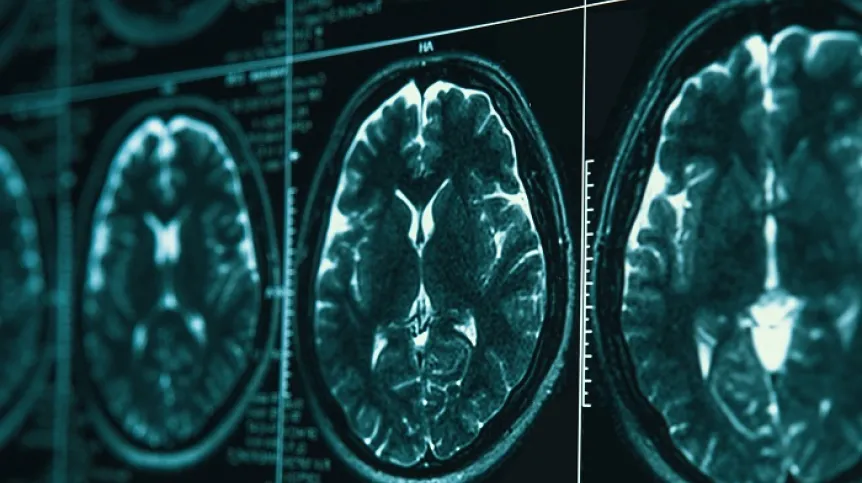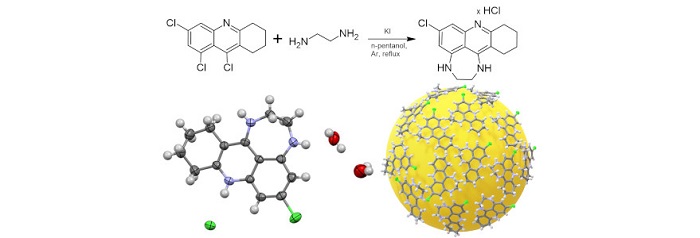
Polish scientists have obtained and tested a compound that is more effective in inhibiting acetylcholinesterase, and at the same time less toxic than a drug commonly used in the treatment of Alzheimer's disease. In patients taking such inhibitors, neurotransmission improves, and thus - cognitive functions.
The new compound is a tetrahydroacridine derivative. On its own, or bound to nanoradiogold particles, it can be used to inhibit the activity of an enzyme responsible for the breakdown of an important neurotransmitter, the deficit of which is observed in patients with Alzheimer's disease.
Its ability to inhibit acetylcholinesterase is about 5,000 times higher than that of rivastigmine, a drug commonly used to treat Alzheimer's disease. This makes it much more effective and at the same time less toxic. It also exhibits a strong fluorescence that is effectively quenched upon adsorption onto gold, opening up new potential diagnostic perspectives in medical imaging.
The new organic compound was obtained by Dr. Anna Zawadzka from the Faculty of Chemistry of the University of Warsaw, and then subjected to comprehensive research, starting from its crystal structure, its electrochemical and optical properties, to biological research.

'We conducted our research in a fairly large, interdisciplinary team. We needed specialists in various fields, including organic synthesis, nanotechnology, to in vitro and in vivo research on animals,’ says Professor Maciej Mazur from the Faculty of Chemistry of the University of Warsaw
The team of scientists from the University of Warsaw, the Institute of Experimental and Clinical Medicine and the National Medicines Institute presented the results of their research in Physical Chemistry Chemical Physics.
Alzheimer's disease is a neurodegenerative disorder that poses an increasing health, social and economic burden. It is the most common cause of dementia manifested by cognitive dysfunctions such as impaired memory, thinking and learning.
PAP - Science in Poland
kol/ zan/ kap/
tr. RL













